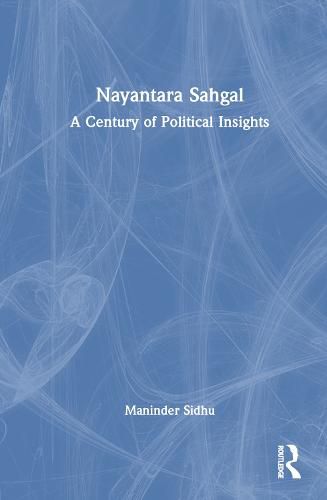Readings Newsletter
Become a Readings Member to make your shopping experience even easier.
Sign in or sign up for free!
You’re not far away from qualifying for FREE standard shipping within Australia
You’ve qualified for FREE standard shipping within Australia
The cart is loading…






This book is a comprehensive critical re-reading of Nayantara Sahgal’s oeuvre. One of the most significant Indian English writers, her fictional and non-fictional engagement with historical events and political dilemmas inextricably links her to the colonial, anti-colonial and post-colonial discourse in India. Drawing transcontinental connections with the ideas of Fanon, Foucault and Said, the monograph juxtaposes recurring themes in her writing with the ideas of significant Indian postcolonial commentators. Tracing the subliminal tendencies in her writing to Gandhian humanity and Nehruvian pragmaticism, the book moves beyond cliches of feminist criticism and genealogical ties to unveil a unique artist who has folded nearly a century of Indian experience in her work.
Drawing on novels, essays, speeches, journalism and interviews by Nayantara Sahgal, this volume will be of great interest to scholars of South Asian literature, postcolonialism, politics and contemporary Indian history.
$9.00 standard shipping within Australia
FREE standard shipping within Australia for orders over $100.00
Express & International shipping calculated at checkout
This book is a comprehensive critical re-reading of Nayantara Sahgal’s oeuvre. One of the most significant Indian English writers, her fictional and non-fictional engagement with historical events and political dilemmas inextricably links her to the colonial, anti-colonial and post-colonial discourse in India. Drawing transcontinental connections with the ideas of Fanon, Foucault and Said, the monograph juxtaposes recurring themes in her writing with the ideas of significant Indian postcolonial commentators. Tracing the subliminal tendencies in her writing to Gandhian humanity and Nehruvian pragmaticism, the book moves beyond cliches of feminist criticism and genealogical ties to unveil a unique artist who has folded nearly a century of Indian experience in her work.
Drawing on novels, essays, speeches, journalism and interviews by Nayantara Sahgal, this volume will be of great interest to scholars of South Asian literature, postcolonialism, politics and contemporary Indian history.